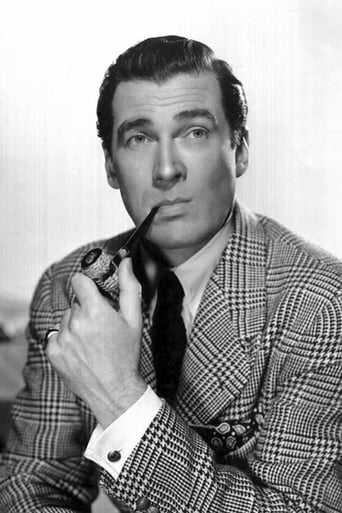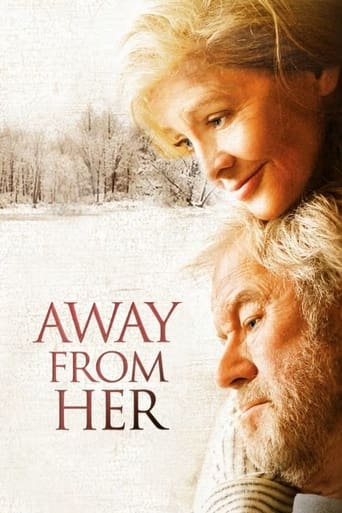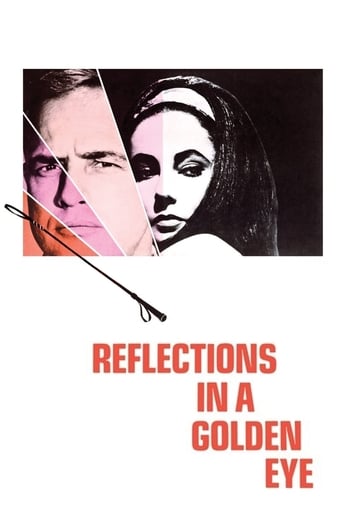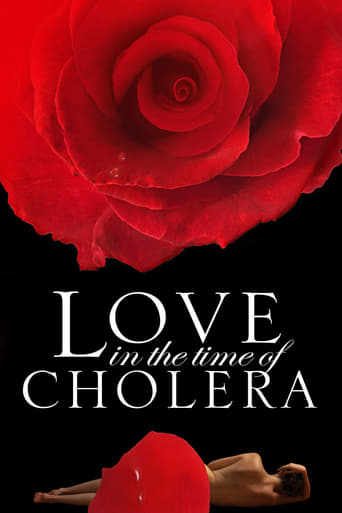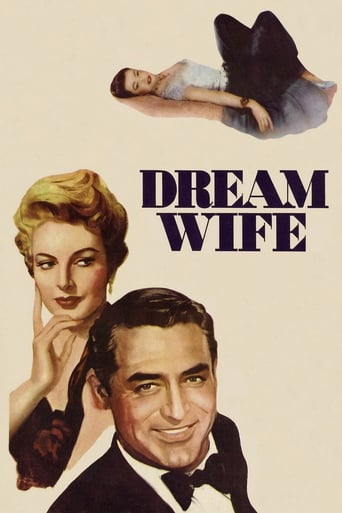
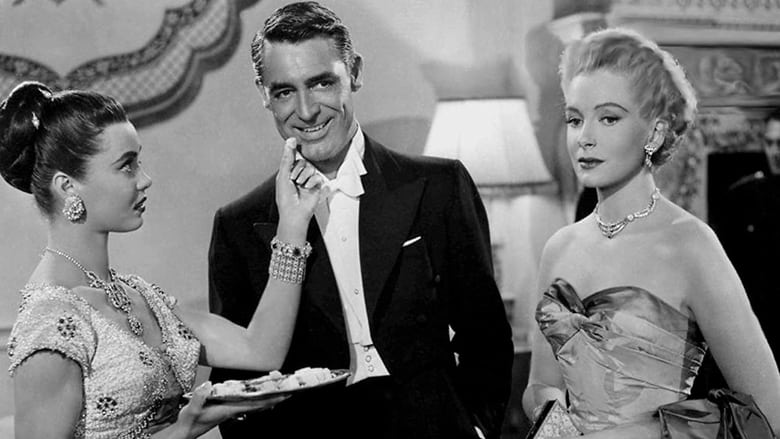
Dream Wife (1953)
Clemson Reade, a business tycoon with marriage on his mind, and Effie, a U.S. diplomat, are a modern couple. Unfortunately there seems to be too much business and not enough pleasure on the part of Effie. When Clemson meets Tarji, a princess trained in all the arts of pleasing men, he decides he wants an old fashioned girl. Princess Tarji's father is king of oil-rich Bukistan. Because of the oil situation and to maintain good political relations during the courtship between Clemson & Tarji, the State Department assigns a diplomat to maintain protocol until the wedding - Effie!
Watch Trailer
Cast
Similar titles
Reviews
Best movie ever!
It's complicated... I really like the directing, acting and writing but, there are issues with the way it's shot that I just can't deny. As much as I love the storytelling and the fantastic performance but, there are also certain scenes that didn't need to exist.
After playing with our expectations, this turns out to be a very different sort of film.
The film's masterful storytelling did its job. The message was clear. No need to overdo.
Cary Grant is Clemson Reade, an American on a business trip to a fictitious Middle Eastern country, Bukistan. He is there to sell oil-processing equipment to the reigning khan, played by Edward Franz. Back home, Reade is engaged to Miss Effington (Effie) who has a career in the U.S. State Department. Deborah Kerr's Effie is in the high ranks of the Middle East section. One can imagine where this story will go. This 1953 MGM film was 20 years ahead of the oil "crises" of the 1970s that had a devastating effect around the world. But it gives a glimpse of the world of foreign relations and international business dealings. And, in this case, how they can overlap and interact with an amusing angle. The younger audiences of today may not know much about the cultural changes in society during the mid to late 20th century. So, things like male chauvinism and women's lib may be nothing more than something they've heard about from the past. Well, this film clearly seems to poke fun at some customs of the time. And, it is an early jab at women's lib way before the movement became widespread more than a decade later. We see that in the early scenes when Reade returns to the U.S. With his arms full of packages at the airport a woman won't open the door for him, but another man does. Then, other men remove their hats when a woman enters an elevator. Reade fumbles his packages to remove his hat while the woman has a glare of indignation on her face. Then, there's something of a role reversal with Reade having to wait on Effie all the time as she has to work late and gets calls away from their dinner and evening out to go back to the office. All of this seems to be juicy fodder for a very good comedy. And, with these two leads and Walter Pidgeon as Effie's State Department boss, Walter McBride, "Dream Wife" should have been a big hit. But it wasn't when it hit theaters in 1953, and it's not even mildly entertaining today. This is clearly a case of a terrible screenplay that sinks a movie. Sometimes, the roles of actors will lift weak scripts to make fair movies. But in this case, the dull script is so bad and humorless that even Cary Grant and Deborah Kerr can't save the film. As other reviewers have noted, Grant seems to grow detached from the film as it goes along. In the early scenes he seems to strain to give a sense of comedy, as he is so adept at doing with his side-glances and facial expressions. This script is so bad it's hard to imagine the producers, directors and studio seeing any humor in it. Others have noted that Grant was embarrassed by this poor film so much so that he didn't do another movie for two years and almost hung up his stage spurs. Thankfully, he didn't and we have some wonderful and great films with Cary Grant in the lead into the next decade. On everyone's list of most memorable love stories is Grant and Kerr's pairing for the 1957 blockbuster, "An Affair to Remember." They showed that they did have chemistry on film – if the screenplay was right.
I gave it a "2" by virtue of it being a Cary Grant movie. Otherwise, I would have given it a "1" with a wink because it is so bad that it is good, which is the very definition of camp. There are those kind of days when a movie this awful seems just right, especially if you need something to do in order to take your mind off of anything really important in your life.I will not recap this silly piece of '50's fluff. You must watch it for yourself, but please don't blame me if you want the 100 minutes of your life back. I did warn you. Nevertheless, in my opinion, Cary Grant in anything trumps an incredible percentage of movies being made these days. One must still wonder what Cary was thinking when he agreed to appear in this mess of a movie. It would be hard to believe that he needed the money, but, who knows? I suspect that it tanked at the box office and if I wasn't too cheap to buy a premium subscription to IMDb, I could find out.Perhaps in retrospect Cary Grant, himself, provides us with the ultimate review of his movie, as he decided to retire from film-making immediately after making it.
This film is a fascinating look at our culture's post WWII attitude towards women and the Middle East. The movie showcases the big message of get-the-women-back-into-the-kitchen that followed the War. As for our attitude towards Islamic peoples, it IS all about oil as far as our government in this film is concerned. The rulers are fabulously wealthy and exotic, the portrayal of them and their customs betray Hollywood's gross ignorance of the peoples and the religion. The princess' dance (seductive and Martha Grahamish) in the opening scene says it all. The women in the court all wear short sleeves. No one bothered to find out anything about the religion, it would seem. The behavior of the 'Bakistanis' is made up only to create comic moments, no matter how inaccurate, unseemly or unrealistic.The plot is silly and implausible, but it's fun to watch Grant and Kerr in their first on screen performance.
In Stewart Granger's memoirs he mentions that after seeing future wife Jean Simmons in Black Narcissus, he was so overcome with sexual desire that he felt he had to marry her. It's almost as if Sidney Sheldon had a few drinks with Granger and was told this story years before it came out and decided it would make a great movie plot.Cary Grant is an oil executive and Deborah Kerr a female diplomat in the previously all male world of Foggy Bottom in the not too distant past. In negotiating for oil leases with the mythical kingdom of Bukistan, Cary is really bowled over by the fact that Princess Betta St. John is so unlike the career minded Kerr. A few words here and there and the engagement between Grant and Kerr is off and between Grant and St. John is definitely on.Of course the culture clash occurs and it ain't quite what Grant envisions. And Kerr starts to work on St.John and she's got some new ideas sprouting in her head.The Fifties were so different than now. Those kind of ideas in some Moslem countries would have gotten St. John killed now. Relations between the west and the Moslem world has certainly changed over 50 years. Grant and Kerr make fine leads and notice should be paid to Walter Pidgeon as Kerr's State Department boss and to Eduard Franz as the King of Bukistan who turns out to be a very wise fellow indeed.I wonder what Stewart Granger must have thought in seeing this film?


